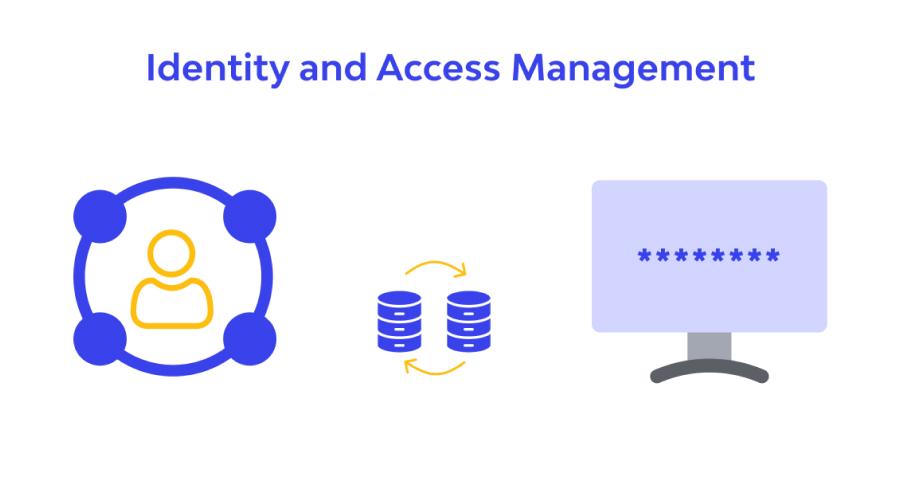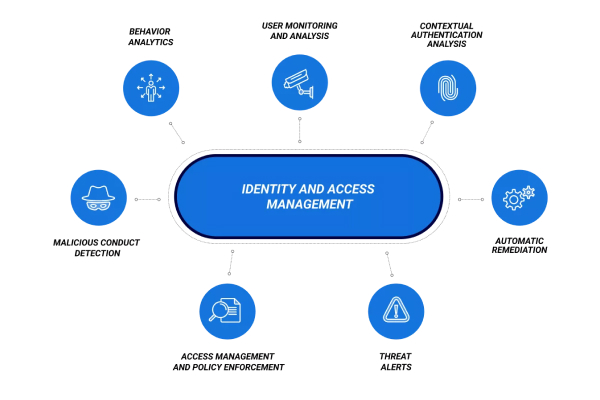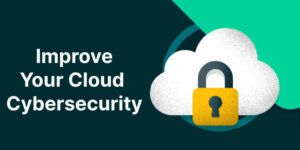
Data protection has never been this essential than it is now in the digital age. One pedestal area of cybersecurity management is the management of Identity and Access Management (IAM). IAM specialists are mainly responsible for the protection of an organization’s data through proper authentication of users as well as proper people getting proper access to the right resources at the right time. The article will also discuss how to become an IAM specialist, the requirements to qualify, and career options.
What is an Identity & Access Management (IAM) Specialist?
An Identity and Access Management Specialist is one who takes the identity and access management roles in an organization to keep its access and information systems safe from unauthorized access. These activities ensure that only registered people are allowed to have access to sensitive systems without permission carry minimum risks, and in general, comply with regulations associated with industry practices and norms.
The work entails user access control configuration and management, implementation of authentication mechanisms, user activity audits, and policies regarding the use of sensitive data. IAM specialists will usually work with internal IT teams, security professionals, and other departments to make sure that the access management systems are efficient, secure, and in line with the relevant standards.
Educational Pathways to Becoming an IAM Specialist
1. Bachelor’s Degree
A bachelor’s degree is preferred by most employees for computer science, cybersecurity, or a related field. This provides an excellent foundation in programming, networking, and security concepts. In addition, this degree develops critical thinking, which is a critical requirement for designing access control systems and solving the security challenges that come with it.
2. Certifications
Obtaining industry-recognized certifications can boost your credentials and demonstrate your expertise in IAM. Some of the most valuable IAM certifications include:
- Certified Identity and Access Manager (CIAM): This certification from the Identity Management Institute (IMI) is based on the principles and practices of managing access to computer systems. Being a specialist certification reflects your mastery of IAM technologies and concepts.
- Certified Information Systems Security Professional (CISSP): Although it is not restricted to IAM, CISSP is universally recognized as one of the topmost standards for security professionals in the area of information and is often mentioned as a requirement for higher-level security positions.
- Certified Information Security Manager (CISM): This is also a security certification, but now the focus is on the governance and management of information security systems. CISM is for those planning security programs and policy management.
3. Hands-on Experience
Hands-on practice with IAM tools and technologies is a critical component. Internships in IT security, such as network administrator, system administrator, or security analyst. Most of the positions include user access management, implementing security controls, and audits, which apply to a career in IAM. Familiarity building with IAM solutions like Okta, Microsoft Active Directory, and ForgeRock develops critical technical skills on the job.
4. Advanced Training
If you wish to specialize more, you can go for a Master’s in Cybersecurity or advanced training in IAM solutions and technologies. Such specialized courses and workshops about cloud IAM, user provisioning, and identity governance will keep you updated on the emerging trends in the field of IAM security. Training on advanced tools and scripting languages will boost your skill sets.
How to Become an IAM Specialist

To become an IAM specialist you need to be knowledgeable about Identity Management tools like Active Directory, Okta, or SailPoint, and have a deep understanding of authentication methods like LDAP, SSO, and MFA.
Networking knowledge is important for the integration of IAM with security systems, while scripting skills in Python or PowerShell help automate tasks. Familiarity with regulations like GDPR (General Data Protection Regulation) and HIPAA ensures compliance.
Problem-solving and communication skills should be essential in troubleshooting problems, and also in teamworking.
Skills Required to Become an IAM Specialist
1. Understanding Cybersecurity Principles
Understanding Cybersecurity Principles would be at the core of the IAM’s position. He must know about encryption, data protection, and proper authentication processes so that sensitive information will be safe. Familiarity with security frameworks, such as NIST and CIS, would also help IAM practices be aligned with the best security standards.
2. Technical Skills
- Identity Management: The ability to use solutions like Microsoft Active Directory, Okta, and SailPoint is very important. This is because they help centralize the management of identities, roles, and permissions for users. These, therefore, form an important part of any IAM system.
- Authentication Technologies: This includes a thorough knowledge of authentication technologies such as LDAP, SSO, and MFA to ensure secure access to the system and application. Know-how on these technologies is critical in implementing strict access controls to bar unauthorized access.
- Scripting & Automation: The skills of automating repeated tasks using Python, PowerShell, or Bash script languages can help address several access controls and workflow needs more effectively. There would be no human error possible, and consistency would apply in IAM processes.
- Networking Knowledge: An IAM professional should be versed in the principles of security within the network, firewall, and networking communication protocols such as TCP/IP, DNS, and HTTP. The reason is that IAM interacts with other IT systems, and without proper comprehension of how different security layers work together, it would be soft to penetrate when trying to manage secure access across different environments.
3. Compliance Knowledge
IAM specialists need to know all historical standards and regulations like GDPR, HIPAA, and ISO 27001. Compliance ensures that IAM practices follow the law of the land and fulfill legal and regulatory requirements so both organizations and users are secure. Getting used to these regulations also helps to design IAM solutions that are secure, scalable, and compliant with laws.
4. Knowledge of cloud computing and virtualization
Knowing the cloud platforms such as AWS, Azure, or Google Cloud and virtualization technologies such as VMware is critical. IAM specialists have to manage identities and access in the cloud environment with solutions that are secure and scalable. Knowing the IAM tools of cloud-specific tools like AWS IAM or Azure AD would be highly valuable. It enables seamless integration of IAM with cloud-based services.
5. Experience with SQL databases
SQL expertise is critical in the management of identity data, which may be stored in databases. IAM specialists would often interface with database systems for querying, updating, and maintaining user records. Having a clear understanding of security practices in database systems will ensure that data integrity is protected from unauthorized access. Experience with relational databases, for example, MySQL, PostgreSQL, or even Oracle, has its benefits.
6. PQRST (Problem-solving, Quality, Reliability, Security, Timeliness)
These are the fundamental attributes of an IAM specialist. A strong problem-solving skill ensures rapid resolution of identity-related issues. A focus on quality and reliability ensures robust IAM solutions. Security is paramount to safeguard sensitive data, and timeliness ensures efficient implementation and maintenance of IAM systems.
7. Managing User Groups
An IAM specialist handles user groups as the base of their management, usually organizing users in groups and roles or by the needs and requirements for access to smooth out permissions and control. Managing groups properly leads to easier consistency with simplified rule enforcement and a minimized burden of administrative overhead. Implementing the principle of least privilege while granting users the access they may need also helps strengthen security.
8. Communication Skills
An IAM specialist should be able to communicate effectively. They should be able to explain technical concepts to non-technical stakeholders, such as management or end-users. Clear communication is also required when coordinating with other technical teams to implement access policies or resolve issues.
Job Requirements of an IAM Specialist
- Access Control Management includes creating, managing, and monitoring user accounts and access rights across multiple platforms and systems. This involves ensuring appropriate access for each user by the role and timely removal of access for employees who are leaving the organization.
- Authentication Protocols use very strict authentication protocols like multi-factor authentication, biometric authentication, or SSO. An IAM expert would often test and review authentication processes for security enhancement purposes and user experience improvement.
- User Lifecycle Management governs the lifecycle of user identities; from onboarding to offboarding, ensuring access is granted and removed appropriately. This comprises new account creations, changes in permissions according to role change, and removal of access as employees leave.
- Security Audits & Compliance should be regular audits on whether access controls work well with security policies, industry standards, and regulatory requirements, such as GDPR, HIPAA, or PCI-DSS.
- Incident Management Responding to and investigating access-related security incidents, including unauthorized access attempts or breaches. IAM professionals analyze security incidents, understand vulnerabilities and devise strategies to secure organization and prevent similar incidents in the future.
- IAM Solution Implementation deploys and manages the identity and access IAM tools and technologies, including Identity Federation and Identity Governance and Administration. They access and implement solutions according to the organizational IT infrastructure with scalability, security, and user-friendliness.
Conclusion
Becoming an Identity & Access Management specialist is a pretty exciting and rewarding career for those interested in cybersecurity. Building a strong foundation in IT and cybersecurity, with the right certifications, and hands-on experience with IAM technologies, will position you for success in this growing field. As organizations grow in awareness of the need for secure access controls, IAM specialists will continue to be in high demand.






